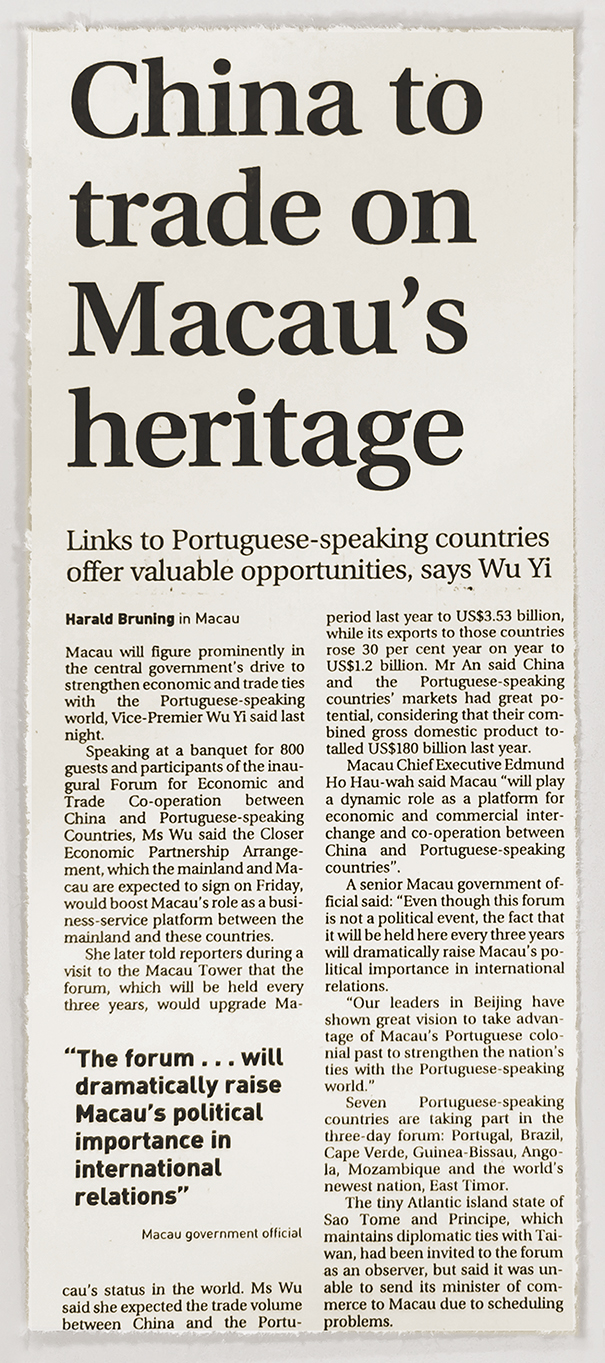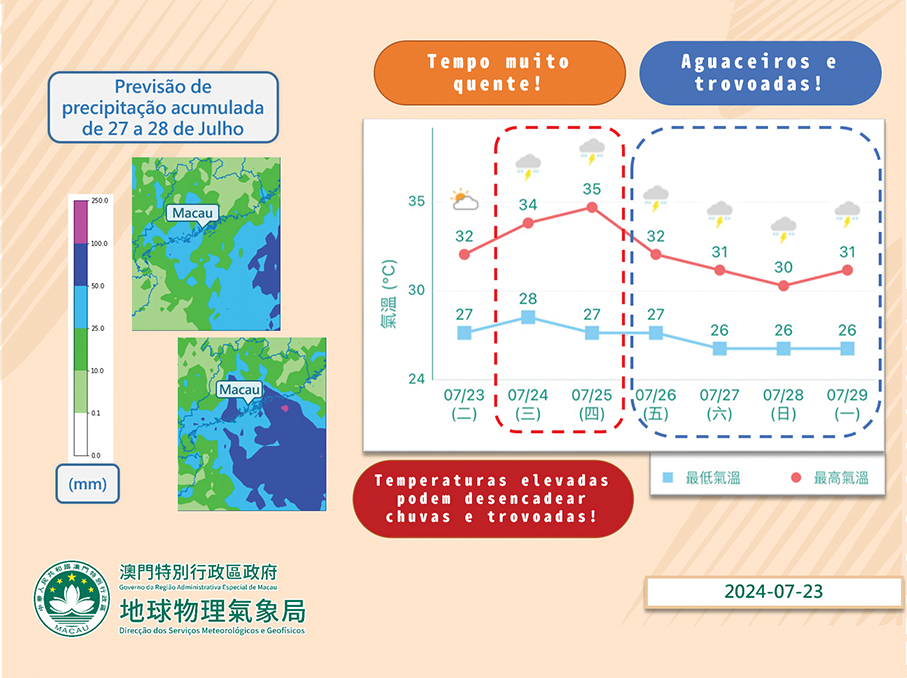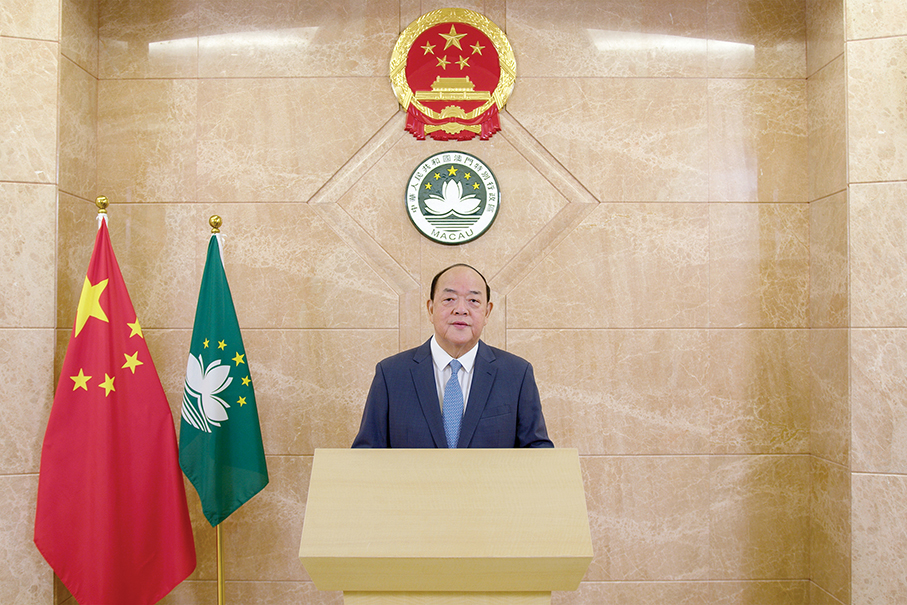Editorial
Yesterday’s Extraordinary Ministerial Meeting of the Forum for Economic and Trade Cooperation Between China and Portuguese-speaking Countries, also known as Forum Macau, has further upgraded Macau’s global status.
Indeed, the meeting took place in extraordinary times - the world is still fighting the COVID-19 pandemic (the global number of confirmed novel coronavirus cases is, sadly enough, set to reach half a billion this week, while, according to worldometers.info, the global death toll tops 6.2 million) and, as Premier Li Keqiang pointed out while addressing the virtual meeting from Beijing, the current international situation is turbulent. Due to the COVID-19 menace, the meeting needed to take place mainly by video link, following several postponements over the past three years.
I can’t avoid pointing out that the one-day local meeting was held in one of the very few countries and territories in the world with zero-COVID-19 fatalities.
I covered the inaugural meeting of Forum Macau on October 12, 2003 as the South China Morning Post’s resident correspondent at that time. Much to my surprise, the editor put my article, headlined “China to trade on Macau’s heritage”, as the number-one story on the front page (I had expected the article to appear on one of the inside pages).
In the article, I quoted the central government’s then vice-premier Wu Yi as telling the media on the sidelines of a visit to the Macau Tower Convention and Entertainment Centre that the triennial forum would upgrade Macau’s status in the world. And that’s what it did. Moreover, she said in a speech later that day at a banquet for 800 guests that the forum constituted a “concrete act” to promote international ties and common development – and she ended the address with “obrigada” – which means “thank you” in Portuguese.
Macau’s then chief executive Edmund Ho Hau Wah said in his speech at the event that Macau “will play a dynamic role as a platform for economic and commercial interchange and cooperation between China and Portuguese-speaking countries.”
A senior local government official told me at that time that “even though this forum is not a political event, the fact that it will be held here every three years will dramatically raise Macau’s political importance in international relations,” adding that “our leaders in Beijing have shown great vision to take advantage of Macau’s Portuguese colonial past to strengthen the nation’s ties with the Portuguese-speaking world.”
An editorial published by the South China Morning Post on that day, headlined “Colonial past provides a valuable legacy”, wrote that the setting-up of the forum “indicates an encouragingly pragmatic approach by the Chinese leadership,” pointing out that Macau’s “unique historical and cultural links are being leveraged to promote the nation’s ties with these [Portuguese-speaking] countries.”
Initially, the forum comprised China as the spiritus rector and seven Portuguese-speaking countries: Brazil, Angola, Mozambique, Portugal, Guinea-Bissau, Cape Verde and East Timor. São Tomé and Príncipe re-established diplomatic ties with the People’s Republic of China (PRC) in 2017, which soon after enabled the Atlantic two-island nation to join Forum Macau.
Yesterday, it was the turn of another African nation, Equatorial Guinea, to join the forum. Portuguese is one of the central African country’s three official languages, alongside Spanish and French. However, Fang, a Bantu language, is the former Spanish colony’s main language, spoken by some 85 percent of its 1.5 million inhabitants. Equatoguineans gained their country’s independence from Spain in 1968. Equatorial Guinea is one of Africa’s major oil exporters.
Forum Macau now comprises China and nine Portuguese-speaking countries, covering one-fifth of the world population.
The world’s nine Portuguese-speaking countries have some 290 million inhabitants, about 73 percent of them in Brazil, which alone has a population of 212 million. Portuguese is the only official language or one of the official languages in these countries which also, as one would expect, have a large number of indigenous and Creole languages such as Tetum in East Timor and Guinea-Bissau’s Kriol.
Portuguese is one of the world’s most spoken languages alongside Chinese, English, Hindi, Spanish, Arabic, Malay, and Bengali.
All nine Portuguese-speaking countries are coastal nations, the legacy of Portugal’s seafaring history of half a millennium of maritime expansion which, obviously, included Macau.
Chief Executive Ho Iat Seng underlined in his speech at yesterday’s meeting that thanks to the central government’s strong support, Macau’s role as a platform for a wide range of services between China and the world’s Portuguese-speaking countries has been strengthened and improved since its setting-up 19 years ago. He singled out economic and commercial cooperation, scientific research, traditional Chinese medicine (TCM), culture, tourism, conventions and exhibitions, trade, finance and young entrepreneurship as areas where Macau’s platform role has made progress.
Ho also pointed out that President Xi Jinping visited the China-Portuguese-speaking Countries Commercial and Trade Service Platform Complex in 2019, indicating the central authorities’ commitment to reinforcing Macau’s unique role as a platform between the nation and the Portuguese-speaking world.
Yesterday’s plaque-unveiling ceremony for the new China-Portuguese-speaking Countries Exchange Centre for Epidemic Prevention at the complex marked another concrete step to strengthen Macau’s platform role.
Forum Macau is one of various fora and similar entities set up by the central government to promote the nation’s relations with different geographies and cultures, such as the China-Arab States Cooperation Forum and the China-CELAC* Forum, all of which are concrete expressions of China’s unwavering commitment to multilateralism, based on its Five Principles of Coexistence dating back to the early 1950s: mutual respect for sovereignty and territorial integrity; mutual non-aggression; non-interference in each other’s internal affairs; equality and mutual benefit; and (last but not least) peaceful coexistence.
Tiny Macau can take great pride in playing a supportive role in the international relations of one of the world’s economically, politically and culturally most important countries.
– Harald Brüning
* The Community of Latin American and Caribbean States (CELAC) has 32 member states

Copy of the South China Morning Post’s front page on October 13, 2003.









